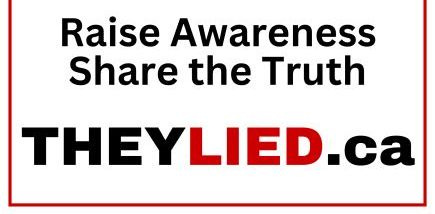The latest newsletter of Senator Alex Antic (Senator representing South Australia in the Federal Parliament):
* * * * * *
In many fields of study, predictions are frequently wrong and disagreements amongst “experts” commonplace.
Yet when it comes to public policy, many politicians and media personalities reference ‘expert opinion’ as though such opinions represent conclusive statements of fact.
Many of our most contentious policy discussions are dominated by phrases like “the science is settled” and “the experts agree”.
When ‘expert opinion’ is invoked in this way, it commonly replaces any logical justification for a policy decision. As a public relations tactic it works well: a politician can avoid making difficult arguments, whilst still maintaining credibility. Because after all, if an ‘expert’ says it’s a good policy then case closed!
How often have we seen so called fringe ideas be denounced as “conspiracy theories” only to be proven correct 6 months later. It reminds me of the joke “What is the difference between a conspiracy theory and the truth”…… Answer, ”About 6 months”.
Last year I gave a speech in Parliament where I touched on many of these themes. You can watch it here:
A key Liberal principal is belief in the ‘marketplace of ideas;’ that free and open debate is the best generator of good policy. Foundational to this is the requirement that all ideas be judged according to their logical merit.
When considering issues of public policy, we should of course seek to hear from informed people. However, we should not make the mistake of holding the opinion of such people as inherently superior.
17th century philosopher John Locke, who is often considered the “Father of Liberalism”, derided this fallacy as an ‘argumentum ad verecundiam,’ a Latin phrase he coined meaning ‘appeal to shamefacedness.’ He gave it this name in reference to the way those employing this fallacy count on their opponent lacking the self-confidence to publicly challenge the view of a supposedly learned individual.
This is precisely the way we see appeals to authority used today. Whenever someone is so bold as to question decisions made in such sacrosanct policy areas as health or the climate, they are immediately chastised for “ignoring the experts” and not “trusting the science.” No matter how many times a publicly lauded ‘expert’ is proven wrong, this mentality continues to dominate the discourse.
I do not find it surprising that three of our country’s greatest public policy issues over the past ten years have all had their public debate impeded this way.
Net zero, childhood gender treatment, and the COVID pandemic response are all areas where free and open debate were shunned in favour of parroting the sacred pronouncements of ‘experts.’
Politics must resist the tendency by some to blindly elevate ‘expert opinion’ to the level of unquestionable, conversation-ending ‘truth.’
All ideas should be wrestled with and challenged before being embraced, no matter who is promoting them.
Yours sincerely,
Alex Antic
Website: https://www.alexantic.com.au/
Newsletter: https://www.alexantic.com.au/join
* * * * * *
.
.
.
.
.
They Lied
Join the campaign to Take Action and Raise Public Awareness
.
Waking up the Masses
- watch our interview with Iron Will
.
Ways you can help Raise Public Awareness
https://theylied.ca/SpreadTheWord.shtml
.
Ways you can Take Action
https://theylied.ca/TakeAction.shtml
.
Visit our new Take Action Toolkit
https://theylied.ca/TakeActionToolkit.shtml
.
The stages of action are:
denial >> awareness >> understanding >> solutions
Home Page: https://TheyLied.ca/
Disclaimer: https://TheyLied.ca/Disclaimer.shtml
.
.






Expert opinions are most often purchased from a a person selling out their honesty.
Expert opinions are usually based on agendas. It is about science that is paid for and not tested.